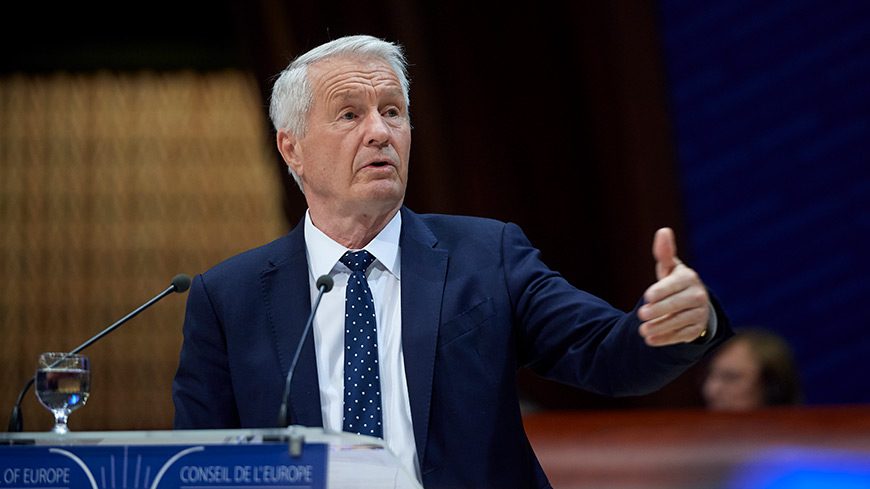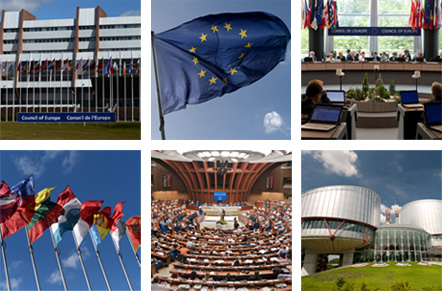In his last appearance before the Parliamentary Assembly prior to the election of his successor in June, Secretary General Thorbjørn Jagland faced several questions concerning the organisation’s budgetary crisis, caused by the Russian Federation’s non-payment of contributions for nearly two years. He rejected suggestions that there were viable alternatives to the financial contingency plan, due to take effect later this year, such as asking the European Union for money, or taking out a loan from a bank. Mr Jagland said that while the EU could fund specific projects, for example in Ukraine, it was neither a ‘rich uncle’ nor a cashpoint machine to pay for the ordinary budget, which should, he argued, only be funded with public money from Council of Europe member states. As for taking out a loan, he said no bank would make an open-ended lending commitment, without knowing how much money would be borrowed, and for how long.
In answer to a question about the consequences of Russia leaving the Council of Europe, Mr Jagland predicted that a so-called ‘Ruxit ‘ would create a different Europe with dividing lines between Russia, whose 140 million citizens would be deprived of access to the European Court of Human Rights, and the rest of the continent.
Asked about the disputed municipal election results in Istanbul, Mr Jagland replied that the Congress was the only international body that had monitored the local elections in Turkey. He added that the Council of Europe was closely following the situation in the country’s largest city.
In response to a question on the impact of the Council of Europe’s platform for the protection of journalists, set up in 2015, the Secretary General replied that 12 of the continent’s most prestigious journalist organisations were satisfied partners. He acknowledged that there had been problems with some member states, but a number of issues had been successfully resolved.
Asked about the advice he would give to his successor, after spending ten years at the head of the organisation, Mr Jagland replied that he would make three proposals. Firstly, the existing ‘aquis’ of the Council, including the European Convention on Human Rights, the Social Charter and the many conventions, should be protected and preserved. Secondly, the European Court of Human Rights should be protected. Finally, the ‘aquis’ should be expanded, in response to new challenges facing Europe, including Artificial Intelligence and modern slavery.



